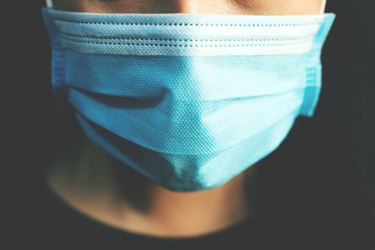The Lasting COVID-19 Impact On Cell And Gene Therapy

Meeting on the Mesa 2020, ARM’s annual event dedicated to the cell and gene sector, was held virtually this year. In case you missed it, with ARM’s help, I crafted a few recaps, including the panel discussion titled, Disruptive Technologies that Will Change Therapy as well as Featured Fireside Chat: FDA Perspective and Live Q&A Session where Janet Lambert, CEO of ARM talked to Dr. Peter Marks, Director, Center for Biologics Evaluation and Research (CBER), FDA. Here, Wilson W. Bryan, M.D., Director, Office of Tissues and Advanced Therapies, CBER, FDA and Curran Simpson, Chief Operations and Technology Officer, REGENXBIO answered audience questions about COVID-19’s impact on cell and gene therapy.
How do you see home health care — or telemedicine — helping trials move forward?
Wilson W. Bryan: Telemedicine will allow patients at remote locations (i.e. locations far from the study site) to participate in clinical trials. This will increase the pool of patients who are available to participate in trials, and thus facilitate completing enrollment. Telemedicine will allow gathering data even when subjects are too sick or disabled to come to the study site, so that there will be fewer missing data. Therefore, studies are more likely to have interpretable results.
With respect to enrollment in clinical trials, to what extent has the pandemic dampened the number of enrollments needed to support clinical trials?
Curran Simpson: Depending on the type of study (rare, non-rare) the impact has differed. Overall enrollment in rare disease has been challenging due to site closures or restrictions but has recovered. Non-rare enrollment is challenged less, but there continues to be concern by potential patients to visit sites. Dr. Bryan, thanks for your overview of facility inspections.
How is CBER managing their reviews of regulatory submissions and meeting PDUFA dates?
Wilson W. Bryan: Speaking for the Office of Tissues and Advanced Therapies (OTAT), we are giving priority to products that will help to address the COVID-19 pandemic. The next priority is products that have Breakthrough Therapy Designation (BTD) or Regenerative Medicine Advanced Therapy (RMAT) Designation. Among our PDUFA goals, we give priority to the timelines associated with license applications. Due to the increased workload, we have delayed some meetings; these meetings are still scheduled, but at a later date than if we did not have the increased workload associated with the pandemic.
Dr. Bryan, of the COVID-driven cell and gene therapy protocol change submissions your office received, what portion would you describe as "major" (program threatening?) vs. routine?
Wilson W. Bryan: That's a tough question, and I'm not sure I have a good handle on the answer. My overall impression is that the majority of changes are not major, i.e., the clinical trial is delayed, but the integrity of the trial is intact. Of note, some delays can be "program threatening" for smaller companies with less resources.
How is the FDA auditing facility? Is it by level of severity of requirement outside of COVID-19 vaccines? For example, mRNA production facility getting additional attention to help along with COVID.
Wilson W. Bryan: There are a variety of considerations that go into determining whether to proceed with an inspection. These considerations include the location of the manufacturing facility (e.g., domestic vs. international), the current state of the pandemic in the area of the manufacturing facility (i.e., is it safe for FDA inspectors to travel to that site), the unmet medical need (e.g., whether the product is a new product that will address an unmet need in a serious disease), and the inspection history of the manufacturing site (e.g., whether the site is brand new and has never been inspected before, or is it a plant that has been inspected before and there have been many problems with the facility, or is it a plant with an excellent inspection history?).
Are you anticipating any “knock on” effects of Covid-19 as vaccine manufacturing ramps up (supply chain shortages of glass vials or other single use items, fill and finish capacity)?
Curran Simpson: Yes, we do expect shortages of many components, particularly single-use — and are working with suppliers to ensure they know both our short- and longer-term needs. The same issue of capacity already existed pre-COVID for both bulk drug and fill/finish and is likely to persist and perhaps get worse as manufacturing of vaccine accelerates. Therefore companies building or operating their own facilities will have an advantage over virtual companies.
